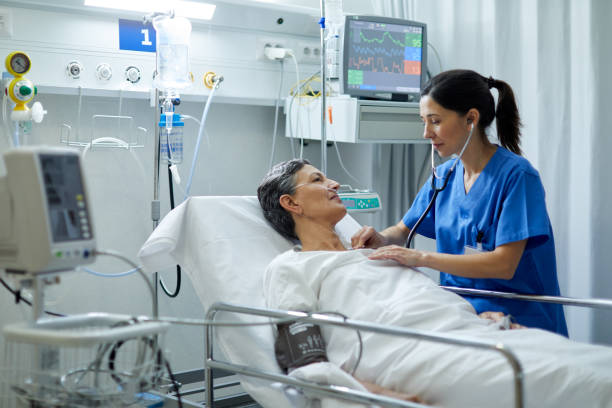Pneumonia is a serious respiratory infection that can affect people of all
ages, leading to significant health complications if not promptly addressed. In
this comprehensive guide, we will delve into the causes, symptoms, and the most
effective treatments for pneumonia.
What is Pneumonia?
 |
| Taken from Google |
The air sacs in the lungs are most affected by pneumonia, an inflammatory
infection that causes them to swell with pus or other liquid. This may result
in significant respiratory problems and a drop in the body's oxygen levels.
Pathogens such as bacteria, viruses, and fungus can all cause pneumonia.
 |
| Taken from Google |
Causes of Pneumonia
- Bacterial Infections: Streptococcus pneumoniae is frequently the cause of
bacterial pneumonia, however it can also be brought on by Haemophilus influenzae and Staphylococcus aureus.
- Viral Infections: Adenoviruses, respiratory syncytial viruses (RSVs), and
influenza viruses are frequently responsible for viral pneumonia.
- Fungal Infections: Even though it's less frequent, organisms like
Pneumocystis jirovecii can cause fungal pneumonia, especially in those with
compromised immune systems.
- Aspiration Pneumonia: When foreign materials like food, saliva, or gastric
acid are breathed into the lungs, pneumonia of this type develops.
Common Symptoms of Pneumonia for Diagnosis
Early pneumonia diagnosis is essential for effective therapy. Depending on
the reason and the person's general health, the symptoms can vary, but typical
symptoms include:
High Fever: A high fever that comes on suddenly is frequently an early
indicator of pneumonia. |
| Taken from Google |
Persistent Cough: a cough that discharges green, yellow, or red mucus. |
| Taken from Google |
Shortness of Breath: respiratory difficulties or shallow, fast
breathing. |
| Taken from Google |
Chest Pain: This could be severe and get worse when you cough or take
heavy breaths. |
| Taken from Google |
Fatigue: being overly exhausted or feeble. |
| Taken from Google |
Confusion: Pneumonia, especially in older people, can cause confusion or
changes in mental awareness. |
| Taken from Google |
Identifying Pneumonia
A healthcare professional will carry out a complete examination if
pneumonia is suspected, which will include
 |
| Taken from Google |
- Physical examination: This may involve using a stethoscope to listen to
the lungs and listening for any unusual breath sounds.
- Chest X-ray: This is a typical diagnostic tool to see how the lungs are
doing.
- Blood tests: These can be used to identify the kind of infection that is
causing the pneumonia.
Effective Treatments for Pneumonia
The method of treating pneumonia varies on its severity and origin.
Commonly used therapies include:
Antibiotics: If bacterial pneumonia is identified, an antibiotic regimen
will be recommended. |
| Taken from Google |
Antiviral Drugs: Antiviral medications may be suggested for viral
pneumonia. |
| Taken from Google |
Fungal Drugs: Particular antifungal drugs will be given in the treatment
of fungal pneumonia. |
| Taken from Google |
Supportive care: entails getting enough rest, drinking plenty of water,
and using over-the-counter drugs to treat symptoms. |
| Taken by Google |
Hospitalization: Serious pneumonia cases, particularly in at-risk groups,
may necessitate hospitalization for close observation and intravenous therapy. |
| Taken from Google |
Conclusion: Pneumonia Must Be Taken Seriously
In order to provide prompt and proper care, it is essential to understand
the causes, symptoms, and effective therapies for pneumonia. Seek medical help
right away if you think you or a loved one may have pneumonia to avoid
complications. Keep in mind that this respiratory ailment can be significantly
improved with early management.















0 Comments